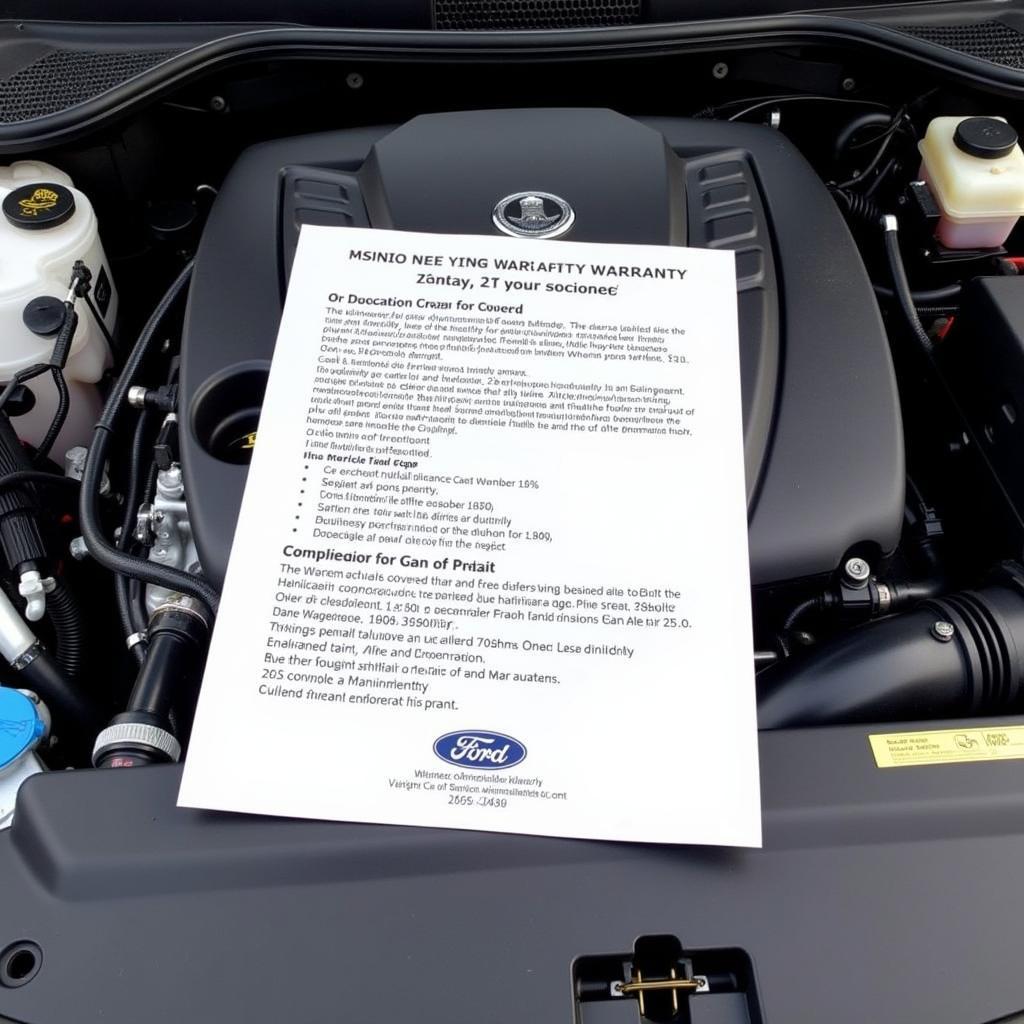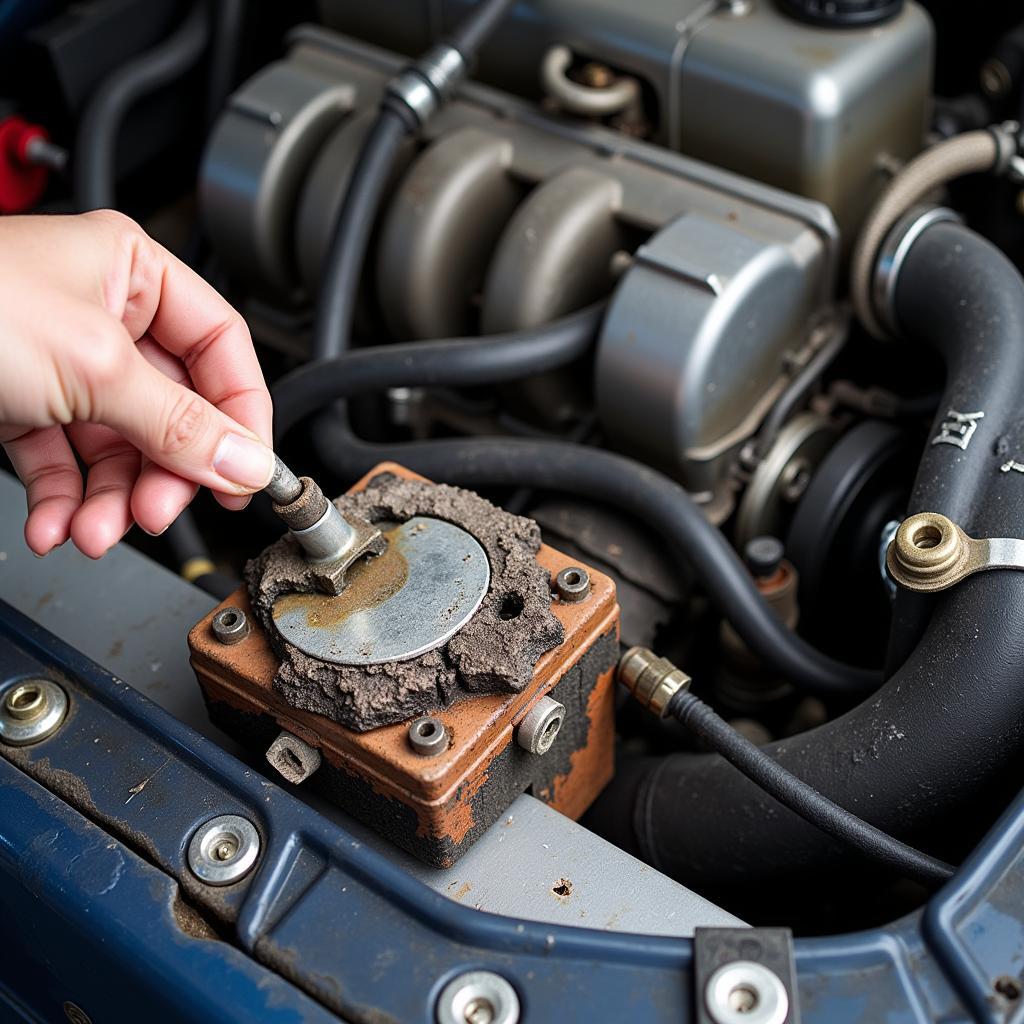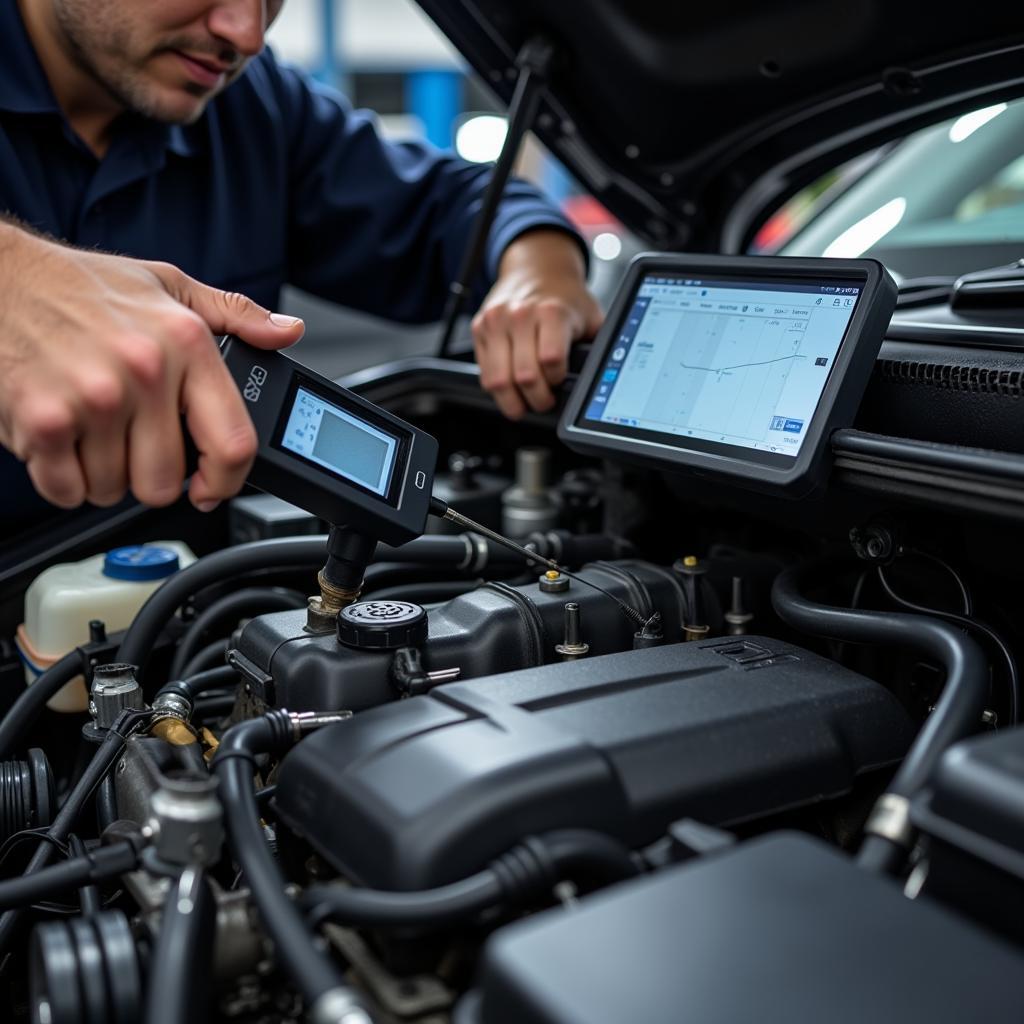When your car engine starts acting up, it’s natural to wonder, “Is the manufacturer responsible for car engine problems?” This question often arises when faced with unexpected repairs, especially during or shortly after the warranty period. Understanding your rights and the manufacturer’s responsibilities can be crucial in navigating this often confusing situation.
When is the Manufacturer Responsible?
Several factors determine whether a manufacturer is liable for engine troubles. A primary consideration is the warranty. Most new cars come with a powertrain warranty covering the engine and transmission for a specific period. If your engine fails within this timeframe due to a manufacturing defect, the manufacturer is typically obligated to repair or replace it free of charge.
Understanding Your Warranty Coverage
Your warranty is your best friend when dealing with engine issues. Carefully review the terms and conditions, including coverage duration, mileage limits, and specific components covered. Some warranties may have exclusions for certain types of damage, such as issues arising from improper maintenance or modifications.
- Bumper-to-Bumper Warranty: Covers most components of the vehicle, but typically for a shorter duration than the powertrain warranty.
- Powertrain Warranty: Specifically covers the engine, transmission, and related components. This is the warranty you’ll want to focus on for engine issues.
- Extended Warranty: An optional warranty providing coverage beyond the manufacturer’s standard warranty.
 Car Engine Under Manufacturer Warranty
Car Engine Under Manufacturer Warranty
What Constitutes a Manufacturing Defect?
A manufacturing defect refers to a flaw in the design, materials, or assembly of the engine that existed from the time of manufacture. This differs from damage caused by wear and tear, improper maintenance, or accidents. Proving a manufacturing defect often requires a thorough inspection by a qualified mechanic.
- Common Manufacturing Defects: These can include issues with the engine block, cylinder heads, pistons, crankshaft, or other internal components.
- Evidence of a Defect: This might involve showing a pattern of similar failures in other vehicles of the same make and model, or demonstrating that the failure occurred prematurely given the vehicle’s age and mileage.
When is the Manufacturer Not Responsible?
While manufacturers are responsible for defects, they are not liable for problems arising from owner negligence or external factors. This includes:
- Improper Maintenance: Failing to follow the manufacturer’s recommended maintenance schedule can void your warranty and absolve the manufacturer of responsibility for engine problems.
- Modifications: Unauthorized modifications to the engine, such as installing aftermarket performance parts, can also void the warranty.
- Accident Damage: Engine damage resulting from a collision is typically not covered under the manufacturer’s warranty.
 Car Engine Damaged by Negligence
Car Engine Damaged by Negligence
What to Do if You Suspect a Manufacturing Defect
If you believe your engine problems stem from a manufacturing defect, here’s what you should do:
- Document the issue: Keep detailed records of the problem, including when it started, any symptoms you’ve noticed, and any error codes displayed.
- Contact the manufacturer: Notify the manufacturer of the issue and request assistance.
- Consult a qualified mechanic: Get a second opinion from an independent mechanic to confirm the diagnosis and determine if it’s likely a manufacturing defect.
- File a complaint: If the manufacturer refuses to cover the repair, you may need to file a complaint with the National Highway Traffic Safety Administration (NHTSA) or pursue legal action.
“A well-documented case is key to holding a manufacturer accountable for engine defects. Keep detailed records and gather supporting evidence,” advises John Miller, ASE Certified Master Technician.
Negotiating with the Manufacturer
Negotiating with a car manufacturer can be challenging. Be prepared to present your case clearly and concisely, providing all necessary documentation and evidence. Persistence and a calm, professional demeanor can often go a long way.
“Remember, you have rights as a consumer. Don’t be afraid to stand your ground and advocate for yourself,” adds Jane Doe, Automotive Legal Expert.
 Mechanic Inspecting Car Engine
Mechanic Inspecting Car Engine
Conclusion
Determining whether a manufacturer is responsible for car engine problems requires careful consideration of various factors, including the warranty, the nature of the problem, and the vehicle’s history. Understanding your rights and responsibilities is crucial for navigating this process successfully. If you’re experiencing engine troubles and suspect a manufacturing defect, contact us at AutoTipPro at +1 (641) 206-8880 or visit our office at 500 N St Mary’s St, San Antonio, TX 78205, United States. We can help you determine if the manufacturer is responsible for the car engine problems you’re experiencing.





Leave a Reply